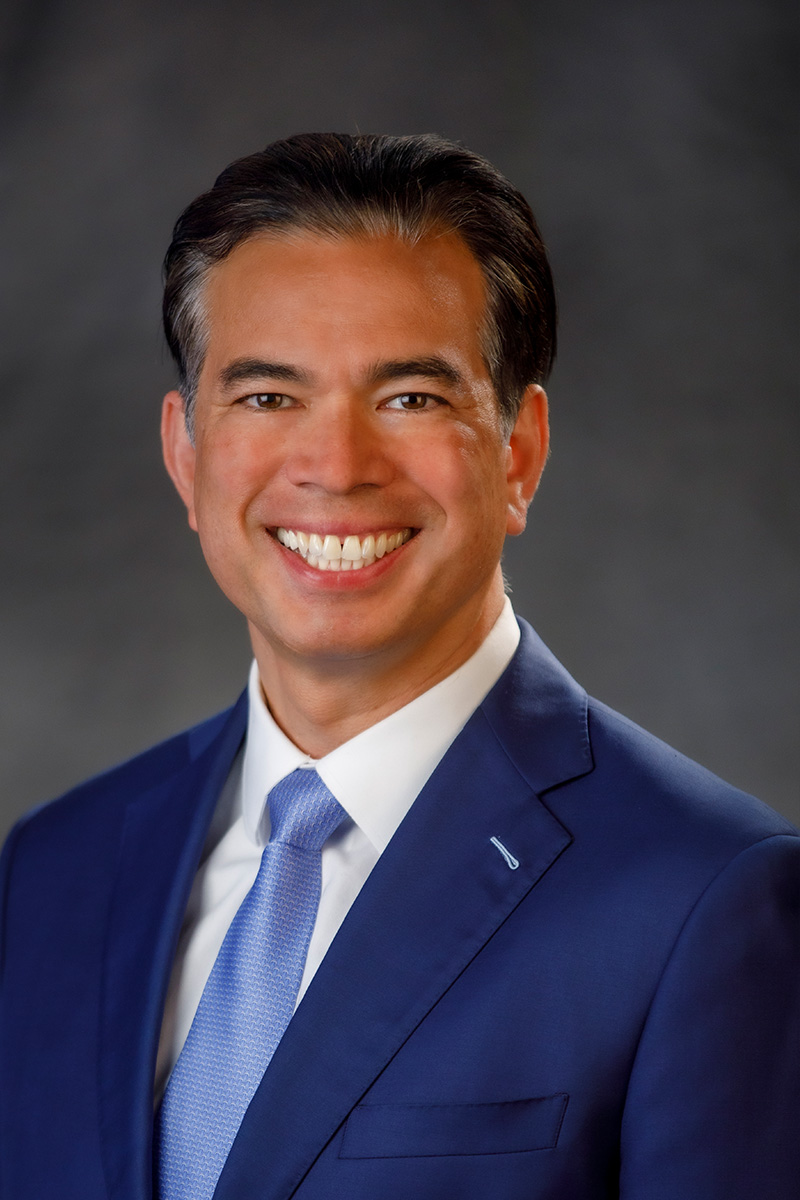Reported hate crimes are at their highest since the attacks on September 11

We sat down virtually with California Attorney General Rob Bonta, on Friday October 21. Recipients of the California State Libraries-administered Ethnic Media Outreach Grant were invited to a special opportunity to speak directly to our state’s chief law officer. The state attorney general’s office sees the grant recipient’s awareness raising work as a “critical part of ensuring accurate, timely reporting at the local level to help victims get access to the support and resources.”
Bonta fielded questions touching on local, statewide, and national issues. He spoke extemporaneously on topics ranging from abuse of discretion review; advice on addressing API-specific hate; the realities of working with a narrowly tailored definition for what counts as a hate crime; explored a discussion on better developed LGBTQIA+ inclusive basic training curriculum for police officers; and recognized space for potential future collaboration with the California Department of Education, considering new ethnic studies graduation requirements (and model curriculum) signed into law last year, effective in 2029.
California Responds to Hate Crimes on the Rise:
Reported hate crimes are at their highest since the attacks on September 11, Bonta acknowledged in opening remarks, while affirming, “We do not shy away from hard truths.”
Notably, anti-Black hate crimes are at the highest, followed by an almost 200 percent increase in API communities reporting incidents, which was already up more than 100 percent the year before. Bonta also acknowledged an increase in reported incidents of sexual orientation bias, by a third.
Regardless of who is attacked, Bonta centered the fact that “a hate crime is not just a crime against the individual but a crime against the community.”
While stating that hate crime deterrence is mostly based on the fear of proportionate punishment and accountability, Bonta recognized that “We cannot prosecute our way out of this epidemic of hate.”
On addressing hate crimes when they do occur, Bonta referred to his office’s advice to local jurisdictions: Establish a hate crime division. Focus on victim services, trauma-informed care, and language equity.
To stop hate (and by proxy stop hate crimes) it starts early: Education, prevention, and broader cultural understanding. These three pillars, Bonta emphasized, are the preventative tools to systematically address hate. Though Bonta stressed the difference between a hate incident and the more narrowly defined hate crime.
Narrowly Defined: Hate Crime
Various news publications had questions about a local alleged hate crime in their community. Their earnest inquiries generally shared background information about the individual and the incident, followed by concerns with either the investigational or prosecutorial discretion of the local jurisdictions involved.
Bonta accepted a limitation on being able to delve into specific cases without all the facts. He did, however, speak at length about some of challenges and homed in on the procedural hurdles which many may not understand.
“It is difficult to prove a hate crime,” Bonta lamented. There are specific definitions and elements. Bonta also emphasized that there are other actions fueled by bias action which may not be hate crimes.
Bonta indicated a practice of stressing to local jurisdictions a need to capture all the factual components of the alleged crime, including to:
- Collect evidence if it is safe to do so.
- Focus on discriminatory animus with intent to perpetuate the crime.
- Memorialize the exact words used in the perpetuation of a crime.
- Investigate social media accounts (to suggest intent).
Bonta also stressed the need to work with local district attorney’s offices to guide them towards building a hate crimes case. Outside the existing framework, Bonta acknowledged that there could be a push to lobby for changing the definition of a hate crime or their accompanying verdicts.
LGBTQIA+ Specific Considerations
Discussing the lived experiencing of Queer people reporting hate crimes, I reflected on details from an upcoming interview with a local victim of an alleged hate crime who struggled with the responding officers and with follow ups after the matter. I also paralleled our community’s struggle — specifically for Trans and Non-Binary folks — in dealing with personnel who have training deficiencies compared to specialized individuals or departments in the health care setting.
“The lived experience of the person who has been harmed and attacked. That should be supported and affirmed,” Bonta added.
Bonta acknowledged that “often” hate crimes aren’t identified as hate crimes and attributed this to a short fall of training. Bonta highlighted a principle from the sets of guidance provided to district attorney offices: Vertical prosecution. “Certain trained individuals work the case from beginning to end. Sometimes there’s a lead with the charging decision and then another person to take it to trial. We encourage continuity,” Bonta said.
Bonta also noted the ability to review and revise individual learning domains (part of curriculum standards adopted by state commission) for police officer basic training to better reflect the competencies needed to work with all members of the LGBTQIA+ community.
Ethnic Studies Curriculum Collaboration:
Reflecting on the 2021 passage of legislation requiring ethnic studies in California public schools, I asked Bonta about the overlap in goals between ethnic studies and practical education and cultural competency as tools for hate crime prevention. As a former assemblymember, Bonta was a longtime co-author of this legislation, including 2020 version of the bill which passed both legislative houses, but was ultimately vetoed by Governor Gavin Newsom.
Bonta celebrated that a “large part of our cultural awareness and sensitivity is embodied in our ethnic studies curriculum” and credited outside work addressing genocide and hate. Bonta agreed these efforts “could evolve into potential curriculum.”
Bonta explained that the ethnic studies curriculum includes hate-based acts and parts of history that are part of the lived experiences of many groups. Bonta agreed that “there’s capacity and potential to build out the existing curricular requirements” to define and address modern hate crimes legislation, through the California Department of Education’s curriculum committee, more specifically.
This publication was supported in whole or in part by funding provided by the State of California, administered by the California State Library.









